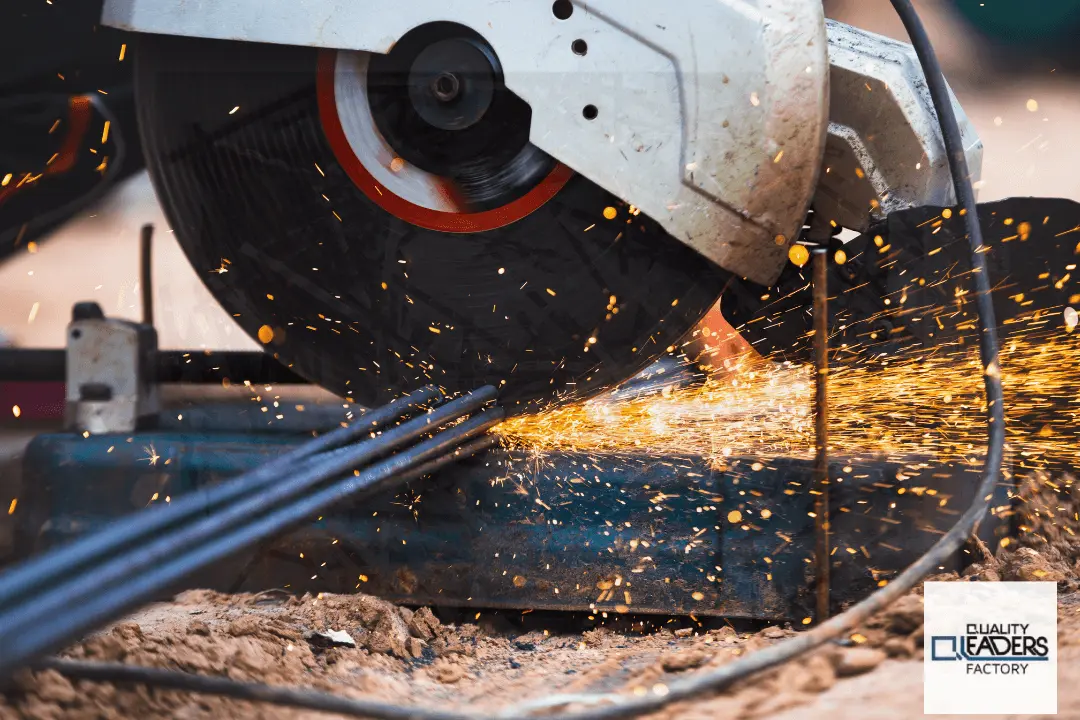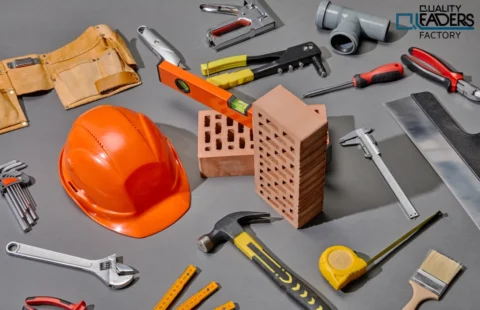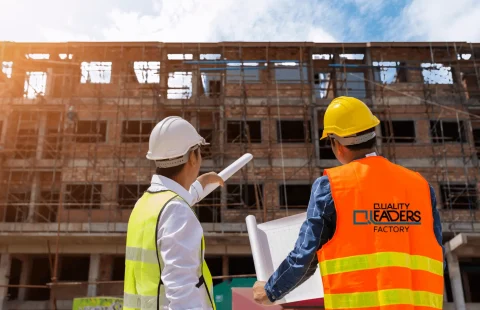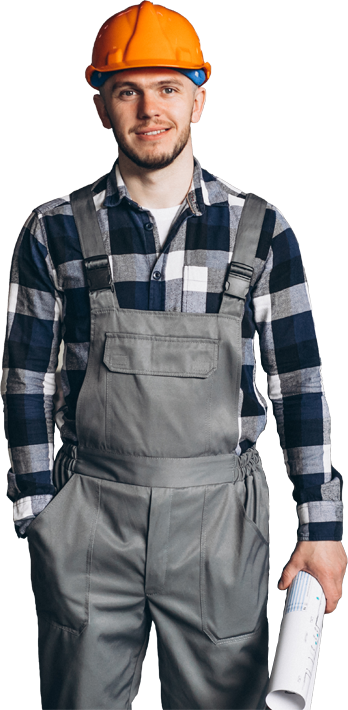
Fibers in Concrete: Enhance Durability and Performance for Saudi Arabia’s Construction Needs
Concrete is the backbone of construction, from massive infrastructure projects to smaller architectural designs. Yet, while concrete provides impressive strength, it has certain vulnerabilities like cracking and shrinkage. Adding fibers in concrete mixes addresses these weaknesses, enhancing durability, flexibility, and resistance to damage. Fiber-reinforced concrete (FRC) is transforming the way structures withstand Saudi Arabia’s extreme climate, from Riyadh’s searing heat to Dammam’s humidity.
Whether you’re in Jubail, Riyadh, Jeddah, Dammam, or Khobar, this guide explains how fibers in concrete can elevate your projects and why Quality Leaders Factory stands as the trusted name in steel fiber manufacturing and concrete solutions across Saudi Arabia.
What is Fiber-Reinforced Concrete (FRC)?
Fiber-reinforced concrete is a composite material made by adding fibers to the concrete mixture, generally in a range of 0.1% to 3% by volume. These fibers, uniformly distributed throughout the concrete, improve its performance by reducing cracks, increasing durability, and withstanding high tensile stresses. FRC bridges cracks before they grow, maintaining the integrity of structures over the long term.
Adding fibers to concrete serves as an alternative to traditional reinforcement methods like steel rebar. Whether you’re building an industrial floor or a decorative panel, FRC offers a viable solution that resists cracking and adds lifespan. Let’s explore the key types of fibers available, each suited to unique applications across Saudi Arabia’s diverse construction needs.
Types of Fibers Used in Concrete
There are various fibers available, each with distinct advantages and ideal applications:
- Steel Fibers
- Ideal For: Industrial flooring, bridge decks, tunnels, airport runways.
- Benefits: Steel fibers provide high tensile strength and make concrete resistant to impact and fatigue. They improve load-bearing capacity, which is crucial for heavy-duty environments.
- Why Choose Steel Fibers: The added toughness is invaluable for projects that require strong, durable floors or structures. Steel fiber-reinforced concrete (SFRC) is robust enough to handle intense pressure and wear.
- Glass Fibers
- Ideal For: Cladding panels, architectural facades, decorative elements.
- Benefits: Glass fibers offer corrosion resistance and create a smooth surface finish, making them perfect for non-structural applications that focus on appearance.
- Why Choose Glass Fibers: Lightweight yet durable, glass fibers help reduce cracking on the surface, enhancing aesthetics for modern architectural projects.
- Polypropylene Fibers
- Ideal For: Slabs-on-ground, pavements, shotcrete applications.
- Benefits: Polypropylene fibers control plastic shrinkage cracking, providing durability at a lower cost.
- Why Choose Polypropylene Fibers: This is a cost-effective fiber option that increases concrete workability, making it easier to apply and finish for large-scale commercial use.
- Synthetic Fibers
- Ideal For: Residential and commercial floors, overlays, and precast concrete products.
- Benefits: Synthetic fibers, like nylon or polyester, improve toughness and control cracks from drying shrinkage and temperature changes.
- Why Choose Synthetic Fibers: Synthetic fibers work well in various projects and are versatile enough to handle temperature fluctuations.
- Natural Fibers
- Ideal For: Sustainable and eco-friendly construction projects.
- Benefits: Natural fibers are biodegradable and enhance the thermal and acoustic insulation of concrete.
- Why Choose Natural Fibers: These fibers, sourced from renewable materials, are ideal for projects focused on sustainability, like green buildings in Saudi Arabia.
Benefits of Using Fibers in Concrete
Adding fibers to concrete provides unique benefits, enabling structures to perform well under challenging conditions. Fiber-reinforced concrete offers:
- Enhanced Crack Control: Fibers reduce the formation and spread of cracks, which is essential in high-stress environments like industrial flooring contractors in Saudi Arabia or roadways.
- Increased Impact Resistance: Fiber-reinforced concrete withstands impact better, which is essential for areas exposed to heavy loads.
- Extended Longevity: Fiber-reinforced structures last longer, minimizing repair costs and maintenance.
- Cost-Effectiveness: Though fibers may slightly increase initial costs, they reduce future repair costs, making them an economical choice for large-scale projects.
- Sustainability: Fibers can replace a portion of traditional reinforcements, allowing for lighter concrete structures that perform efficiently under high-stress scenarios.
By using fiber-reinforced concrete, contractors in Saudi Arabia can deliver long-lasting, damage-resistant structures suitable for everything from residential buildings to large infrastructure projects.
Applications of Fiber-Reinforced Concrete in Saudi Arabia
Fiber-reinforced concrete is versatile enough to meet the needs of diverse projects in Saudi Arabia:
- Industrial Flooring: Fibers strengthen concrete floors in warehouses, factories, and industrial spaces, making them resistant to heavy loads and impact.
- Infrastructure: From bridge decks to tunnels, fiber-reinforced concrete is durable and resilient, handling high traffic and heavy loads without deterioration.
- Pavements and Roads: Fiber-reinforced concrete enhances the longevity and stability of roads and pavements, which is essential for areas like Jubail and Dammam that see substantial industrial traffic.
- Architectural Designs: In projects focusing on appearance, glass and synthetic fibers improve surface finish, making FRC ideal for facades, decorative elements, and cladding.
- Eco-Friendly Construction: Natural fibers help create green buildings that prioritize sustainability and energy efficiency.
Whether it’s the harsh summer heat in Riyadh or the humid conditions of Jeddah, fiber-reinforced concrete meets Saudi Arabia’s environmental and structural demands.
Quality Leaders Factory: Your Partner for Fiber-Reinforced Concrete Solutions in Saudi Arabia
Quality Leaders Factory is recognized as Saudi Arabia’s top manufacturer of steel fibers and is committed to offering high-quality fiber solutions that exceed industry standards. From Jubail to Khobar, our solutions are trusted across the Kingdom for their reliability, durability, and cost-effectiveness.
Why Choose Quality Leaders Factory?
- Comprehensive Fiber Solutions: We provide a variety of fiber options, including steel, glass, polypropylene, and synthetic fibers, to suit every project’s needs.
- Proven Expertise and Reliability: Our experienced team understands the unique construction requirements of Saudi Arabia, from Riyadh’s rapid growth to Dammam’s industrial zones.
- Tailored Solutions for Each Project: Every project is different, and our team customizes fiber-reinforced concrete solutions to align with your specific requirements.
- Commitment to Quality: Quality Leaders Factory prioritizes high standards, ensuring that each fiber-reinforced concrete product we deliver meets the structural and aesthetic expectations of our clients.
Contact Us Today!
Are you planning a new project in Saudi Arabia? Quality Leaders Factory is here to offer top-quality fiber-reinforced concrete solutions designed to stand the test of time. Reach out today and learn how our fibers can make your concrete projects stronger, more durable, and more efficient.
Contact Details:
- Email: info@qualityleadersgroup.com
- Phone: +966 539444804
- Website: Quality Leaders Factory
Frequently Asked Questions (FAQs) on Fibers in Concrete
1. What are the most commonly used fibers in concrete?
- Steel, glass, polypropylene, synthetic, and natural fibers are frequently used to enhance concrete’s durability, flexibility, and crack resistance.
2. Can fiber-reinforced concrete replace steel rebar?
- Yes, in some cases. While fibers can’t entirely replace rebar in all applications, they provide additional support, reduce crack formation, and improve structural integrity.
3. How does fiber-reinforced concrete benefit road and bridge construction?
- Fiber-reinforced concrete improves crack resistance, increases impact durability, and extends the lifespan of roads and bridges, especially in high-stress or high-traffic areas.
4. Is fiber-reinforced concrete suitable for sustainable building projects?
- Absolutely. Natural fibers like coconut and jute are renewable and biodegradable, making fiber-reinforced concrete an eco-friendly choice.
5. How does fiber-reinforced concrete perform in extreme weather conditions?
- Fibers enhance concrete’s resistance to temperature changes, shrinkage, and cracking, making it ideal for the hot, dry climate of Saudi Arabia.
Conclusion
Fiber-reinforced concrete is a transformative material that enhances the structural performance, durability, and sustainability of construction projects. From Riyadh to Jeddah, Dammam, and beyond, fibers in concrete address the needs of Saudi Arabia’s demanding construction environment. Quality Leaders Factory, the leading steel fiber manufacturer in Saudi Arabia, offers top-quality fiber-reinforced concrete solutions tailored to make your project stronger and more resilient.
Contact Quality Leaders Factory today to get a reliable, long-lasting solution that meets the structural needs of Saudi Arabia’s toughest construction demands. Let’s build something that lasts—together.



